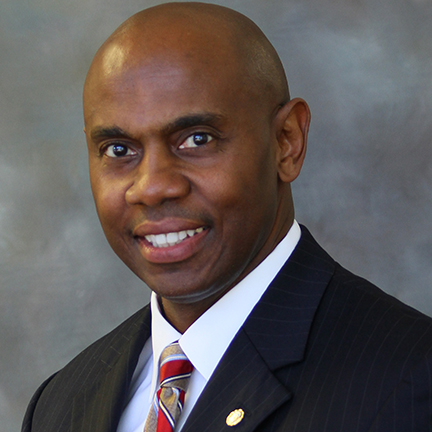Chipola alumnus, Rex Lumber CEO named to national endowment board

The U.S. Endowment for Forestry and Communities recently elected Board members and officers for 2021. The Board welcomes Chipola graduate Curtis Wynn from the Roanoke Electric Cooperative, Caroline Dauzat from Rex Lumber, and Shannon Estenoz from the Everglades Foundation, to serve three-year terms.
Curtis Wynn is President & CEO at the Roanoke Electric Cooperative, located in Aulander, North Carolina. He brings 35 years of experience in the electric utility industry to the Endowment Board, having served in various capacities, including information technology, marketing, economic development, and senior management. He is the first African-American in the nation to serve as the top executive of an electric cooperative. Under Curtis’s leadership, REC has won numerous awards and accolades and continues to expand on its foundational cooperative principles: voluntary and open membership, democratic member control, member economic participation, autonomy and independence, education, training and information, and concern for the community. Curtis received his Associate of Arts degree from Chipola College and a Bachelor of Science from Troy University in Dothan, Ala.
Caroline (McRae) Dauzat is a fourth-generation owner at Rex Lumber and also serves as president of Apalachee Pole Company, one of Rex’s operating companies. Rex has been manufacturing forest products since 1926 and specializes in Southern Yellow Pine lumber. With more than 700 employees located at four mills, two in Florida, one in Mississippi, and one in Alabama, the company actively contributes to the communities in which it operates, including educational programs and training and supporting projects with Habitat for Humanity. Caroline received a Master of Business Administration from Loyola University and a Bachelor of Arts from the University of Florida.
The U.S. Endowment for Forestry and Communities is a not-for-profit public charity working with partners in the public and private sectors to advance systemic, transformative, and sustainable change for the health and vitality of the nation’s working forests and forest-reliant communities. To learn more, visit usendowment.org.

